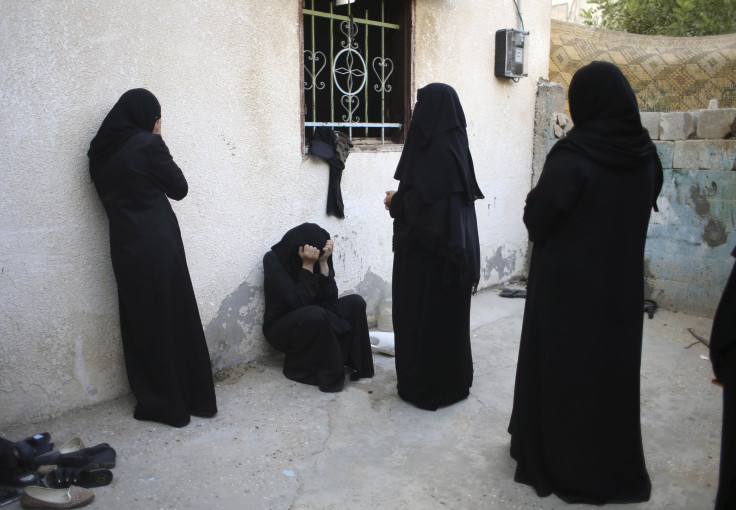2 Women Attempting Lesbian Sex Caned In Malaysia, Spark Human Rights Outcry

Two women from Malaysia convicted of attempting lesbian sex in a car were publically caned Monday in Malaysia’s conservative north-eastern state of Terengganu, sparking an outcry among human rights activists from around the world.
The canning took place in the courtroom at the Sharia high court in Terengganu, a conservative state ruled by the Islamist opposition party Pan-Malaysian Islamist Party (PAS ), on Monday morning, in front of about 100 people, which included family members of the two women. The two women, aged 22 and 32, pleaded guilty to attempting lesbian sex last month. The act is forbidden under Islamic law, and they were fined and sentenced to six lashings of the cane.
Muslim-majority Malaysia routinely prosecuted the LGBT community as it was seen as a threat to the conservative values of the state. The latest incident has sparked outrage from human rights activists as it was a first of its kind punishment for same-sex relations in the nation. It was also the first time a caning was carried out in public in the state, according to a Reuters report.
"Sharia (Islamic law) criminal procedure allows the court to determine where the sentence will be carried out and requires that it must be witnessed by a number of other Muslims," Satiful Bahri Mamat, a member of the Terengganu state executive council who attended the hearing, told Reuters.
"The reason it is carried out in public is for it to serve as a lesson to society," Mamat said adding that the punishment was not intended as a torture or as a means to injure the woman.
In Malaysia, which has a dual-track legal system — where civil laws are exercised along with Islamic criminal and family laws for the country's Muslim population, canning of women is banned under the civil law but it is allowed in some states under Islamic laws.
Many human rights groups have come out against the canning, calling it illegal. Two women’s rights groups, Justice for Sisters and Sisters in Islam, pointed out that caning can only be carried out against prisoners as per the Prison Act 1955 and Prison Regulations 2000.
"As the sentences of the two women did not include imprisonment, they were not considered prisoners as defined by the Prison Act and Prison Regulations,” the two groups said in a joint press conference. "Despite this fact, they were sentenced to caning. The Kuala Terengganu Syariah High Court and Malaysian Prison Department, therefore, may have acted against the law in its execution today.”
The public caning of the two women in #Malaysia is a dreadful reminder of the depth of discrimination #LGBTI people face in the country and a sign that the new government condones the use of inhuman and degrading punishments, much like its predecessor. pic.twitter.com/YQEQlJWec1
— Amnesty International Malaysia (@AmnestyMy) September 3, 2018
Amnesty International, called the incident “atrocious” in a press release issued Sunday night.
“This is a terrible day for LGBTI rights, and indeed human rights, in Malaysia. To inflict this brutal punishment on two people for attempting to engage in consensual, same-sex relationship is an atrocious setback in the government’s efforts to improve its human rights record,” Rachel Chhoa-Howard, Amnesty International’s Malaysia researcher, said.
“The caning of the two women is a dreadful reminder of the depth of discrimination and criminalization that LGBTI people face in the country,” she said. “ As long as draconian legislation which criminalizes Malaysians based on their sexual orientation and gender identity remains on the books, LGBTI people will continue to be at risk of this type of punishment.”
“People should not live in fear because of who they are who they love – the Malaysian authorities must immediately repeal repressive laws, outlaw torturous punishments, and ratify the UN Convention against Torture,” Chhoa-Howard said in the statement.
The Human Rights Commission of Malaysia (Suhakam), in an official press release dated Aug. 15, condemned the ruling by the court, calling the punishment humiliating and demeaning.
“SUHAKAM emphasizes that all forms of torture and other cruel, inhuman or degrading treatment are absolutely prohibited by customary international law and international treaties that Malaysia has acceded to, as well as the Convention against Torture and Other Cruel, Inhuman or Degrading Treatment or Punishment (UNCAT) that the government plans to ratify,” the statement said. “SUHAKAM calls on the government to repeal all laws that impose such punishments and the implementation of the punishment be stayed and reviewed immediately.”
© Copyright IBTimes 2024. All rights reserved.





















